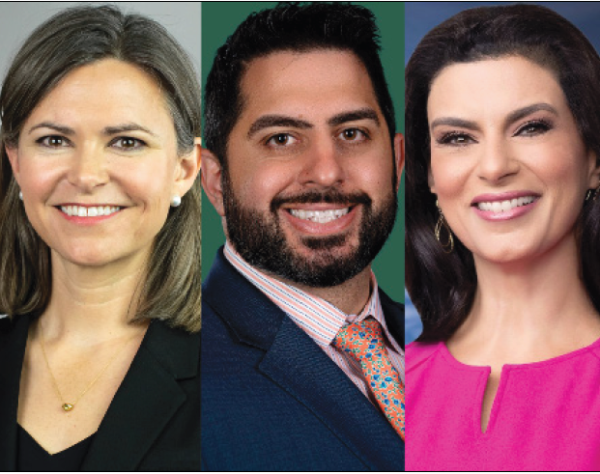
Trying to make sense of the chaos of immigration policy? Fatigued from trying to keep up with all of Trump’s executive orders on immigration? Distressed by the humanitarian crisis ensuing on America’s southern border? Wondering why we haven’t reformed the immigration system since the invention of the internet? Next Monday, Common Ground is hosting a discussion between two immigration policy experts with wildly different approaches to immigration policy. At this event, students will witness two policy experts engage in the very disputes that have defined the debate on immigration. For decades, lawmakers have struggled to reach consensus on immigration legislation. This conversation will help us get to the bottom of what has driven so wide a wedge between policymakers on this issue.
On one side of the stage, we will be joined by Emily Mendrala, former deputy assistant to president Biden, and Senior advisor on migration. Mendrala is a staunch advocate of sensible, humane immigration policy.
This past November, at the Central American Journalism Forum, Mendrala condemned Trump’s approach to immigration: “His migration policies were harsh and inhumane: the separation of children from their parents at the U.S. border, the Migrant Protection Protocols [better known as Remain in Mexico] and the [safe-third-country] asylum cooperation agreements.” Under Trump’s Migrant Protection Protocols (MPP), certain non-Mexico individuals who arrive at the Southern border seeking asylum are given notices to appear in immigration court and are sent back to Mexico. Representation rates for individuals subject to this program were exceedingly low. Biden actually eliminated this program during his time in office, but, since Trump’s reelection, DHS has reinstated MPP.
Mendrala championed Biden’s early approach to immigration: “We treated migrants arriving in the United States with humanity, canceling the family separation program and others that we saw as inhumane.” Mendrala also commented on the potential economic risks that may come with Trump’s deportation efforts: “deporting so many people would greatly affect an economy still recovering from the pandemic.”
Recently, Mendrala has expressed concerns about the impact of Trump’s “One Big Beautiful Bill on immigration. In the American Quarterly, she writes: “The Trump administration will dramatically expand immigration enforcement while also making more people eligible for deportation by terminating—or seeking to terminate—legal status for over a million individuals who previously held Temporary Protected Status.” She warns that this will have a serious impact on Central American countries, especially in the absence of USAID funding.
Mendrala will face off against Jon Baselice, who is a former Vice President of Immigration Policy at the U.S. Chamber of Commerce in Washington D.C. Before joining the chamber, Jon served as legislative counsel to Marco Rubio (R-FL). He has been a loud voice on reform to America’s immigration system. In a tweet from May 2023, he stated, “More legal immigration should be coupled w/ inc. border security, asylum fixes and modernized employment verification.”
For Baselice, the economy is a paramount concern when crafting immigration policy. In his letter to congress on immigration, Baselice opens, “Securing America’s borders and modernizing our broken immigration system are imperative for businesses and communities to prosper and grow.” In the letter, Baselice proposed a series of bills to Congress, many of which tackled immigration economically. For example, under the ‘Dignity Act,’ Baselice writes that the bill would “significantly increase the resources needed to secure our borders, make several commonsense reforms to America’s asylum laws, clear out the visa backlogs and provide businesses with expanded access to the workers they need.” American economic interests govern Baselice’s approach to immigration policy. He has outwardly objected to many of Trump’s immigration policies primarily on the grounds that they would be disruptive to American enterprise. Questions of immigration policy are fundamentally questions about the American economy in the eyes of Baselice.
This is a moment for us, as Hamilton students, to gain insight into the forums in Washington where policy-makers have gone back and forth over legislation around immigration. Behind the technicalities of immigration policy, are livelihoods, businesses and families. The stakes of discussions like this are higher than ever, as we live through the largest deportation operation in American history. I hope this discussion will bring us to a place far deeper than the technicalities of immigration policy and invite us to also grapple with questions about the feasibility of the American dream and the role of immigrants in building the fabric of our nation.